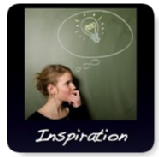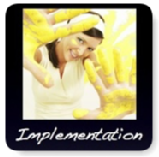All entries for Wednesday 28 October 2009
October 28, 2009
The Creativity Recipe Book for HE – project bid
I recently submitted a bid to the Higher Education Academy National Teaching Fellows project fund. The idea behind the projet has raised a lot of interest already, even without actual funding. Hence I thought it would be good for a wider range of people to see what we are up to. With a 2000 word limit, the initial bid is very much a compressed version of our ideas. Manus Conaghan of the Learning & Development Centre (Warwick's NTF coordinator) did a great job in editing it down and making sense of the ideas and intentions.
We have project partners at Warwick, as well as at Worcester and Oxford Brookes. Since submitting the bid, we have extended the "widening participation" aspect with the support of Brenda King of the Afro Carribean Diversity initiative. If the bid succeeds in the first stage, we will then add details about partnerships with the British Museum, V&A, Warburg Institute Library, regional museums and other cultural organisations.
If you are interested in this project, then please contact me at r.b.o-toole@warwick.ac.uk for more information.
1. Purpose
In 08/09, we ran highly successful student podcasting competitions with small production teams, consisting of students and an academic or alumni. The teams produced podcast interviews exploring some aspect of academic work or the experience of the alumni. In post-competition interviews, the students explained how they had found the “creative project”, when closely linked to academic work, to be an excellent, intensive, exciting, immersive learning process, equivalent too, but in many ways better than, writing an essay.
Podcasting, and other creative forms, are becoming accepted and valued channels for developing and expressing academic work. At Warwick (and other institutions) only a few lucky students have been able to take part but one undergraduate project topped the iTunes chart with 40,000 global downloads.
This project aims to bring this kind of experience to the majority of students, and to integrate and align them with academic work to make them valued, understood achievable.
2. Background
“Most NTFs [National Teaching Fellows] are highly motivated and keen to develop students’ creativity. … Even though most of the NTFs see themselves as having more autonomy, flexibility … many struggle with challenging working conditions… responses highlight the fact that, despite some really innovative teaching, much HE provision is still geared to the previous century (in some instances, the century before that).” (Fryer)
This bleak picture, contrasts starkly with calls of policy makers, business leaders, and social visionaries to put creativity at the heart of education.
Through many innovative initiatives, our understanding of creative practices and the attainment of a creative capability has grown. We understand the benefits to individuals and communities. We have well-founded beliefs about how creativity can help us to deal with many challenges facing HE today Furthermore, the dynamics and necessary ingredients for creative acts (“design thinking”) are well documented by practitioners from industries with innovation at their core (Brown, 2008).
And yet:
“Whilst 75% of the NTFs believe that the capacity to be creative enhances academic performance, few (13.5%) believe that the most academically successful students are also the most creative.” (Fryer)
The situation seems even more frustrating if as according to Jackson:
“…the teaching and learning process, with all its complexity, unpredictability, and endless sources of stimulation ... is an inherently creative place, and there are many potential sites for creativity embedded in … teaching.” (Jackson)
NTFs are indicating that we have not yet put creativity consistently at the heart of what it means to be a successful student, nor rewarded it highly enough. Not only is this detrimental for students, it means that we have fewer opportunities to develop and test theories about creativity and its benefits in the HE context. The project will increase these opportunities to achieve “the tipping point”, leading to greater scope to develop our collective understanding (and to better address the research questions below).
Born of the desire to contribute towards the attainment of “tipping points for cultural change” (Jackson,) and informed by the experiences of several NTFs and institutionally recognized “excellent” teachers, it has also evolved in response to a widespread concern, and a growing demand for help from both new and experienced academics.
Established and new lecturers face difficulties, practical issues are combined with questions about how to integrate creative projects with the curriculum, assessing the results, and ensuring that students understand their worth and relationship to a wider academic and cultural context, and value beyond assessment grades.
E.g., Dr. Nicoleta Cinpoes teaches English Literature at the University of Worcester. New to the profession, and keen to develop her practice to enable creative student academic responses, she would like her undergraduates to undertake creative projects as part of their assessed work. (Particularly important for “non-traditional background” students at Worcester). Although she has done well with available tools, designing and supporting such projects on her own seems to be an insurmountable challenge despite having good links with theatre companies and archives. Dr. Cinpoes will be a key member of the project’s advisory board.
There are many cases in which an academic has successfully designed and supported such creative student projects, with appreciable benefit to their students. Dr. Sarah Richardson is an experienced teacher of History at Warwick and Director of the HEA History Subject Centre. She has supported many creative student projects. Working with her has enabled us to identify key transferable success factors:
- Outputs have appreciable academic value and integrity.
- Fit naturally with the taught curriculum (ideally contributes to assessment) and. the development of the students’ academic and personal identities (giving them opportunities to grow).
- The project has to seem achievable, with a good sense of requirements and the nature of the end product.
- The project will benchmark key success factors, providing an informed approach for the wider academic community to incorporate creativity in to their practice.
Projects such as this one and many others undertaken at Warwick can inform what is required by:
- Defining a range of project types (film making, podcasting, wikis, etc), appropriate to a wide range of disciplines that are achievable without too great an additional cost in time and energy.
- Encouraging the use of established techniques from creative and design-centric industries (“design thinking”, storyboarding, agile development, etc).
- Identifying enabling technologies enabling greater focus on creativity rather than technology – enabled by developments in hardware and software such as solid-state MPEG4 video cameras & Google Wave.
- Inspiration and guidance to create such projects out of the curriculum and beyond.
- Evaluation methodologies for creative projects and their outputs.
- Showcasing excellent projects to encourage students and teachers to undertake them.
- Assisting in finding opportunities for projects.
By providing academics with a range of contextualised model projects with transparent pedagogic underpinnings – we can help to enable creative projects becoming more feasible, common and valued in HE.
4. Methodology
We will develop an open-access, community-owned, online guidebook for students, teachers, support-specialists and collaborators (from creative, cultural, technical and scientific organisations) based upon the concept of “creative recipes”. Including:
- Demonstrations
- Explanations to make projects achievable and promote creative improvisation and adaption beyond the recipe.
- Video, audio and Flash animations
- Recounts from those undertaking the project
- Tips from students, teachers and creative professionals (e.g. filmmakers)
- Teachers notes, concerning assessment, skills development and curriculum integration
This format is a response to the challenge of embedding creative projects across HE. Engaging, accessible but powerful: the book will be constructed online, using a wiki containing a range of “recipes” (initially 20), designed in every way to be inspiring. Individuality and improvisation will be emphasised – creating recipes that are thought provoking but not overly prescriptive. Professional expertise will embed and encourage sound pedagogical, technical, design and creative techniques. Warwick’s successful iTunesU podcasting team will be one dissemination route.
We will fund and support exemplar student projects to drive development of the recipes, using a reflective and critical process, modelled upon the successful Warwick Undergraduate Research Scholarship Scheme.
The involvement of real students and real teachers is essential to the project to make it relevant, designing and testing recipes, and providing personal testimony concerning implementation and academic value.
We will prime this process with awareness raising events and demonstrations, by identifying opportunities for project work in collaboration with cultural, scientific and other partners (currently trialling with the British Museum), and building upon excellent work undertaken by CAPITAL, in collaboration with the Royal Shakespeare Company and the Shakespeare Birthplace Trust.
A range and depth of examples will support a broadening of our understanding of creative projects and community practitioners, allowing us to address key research questions, including:
Can creative student projects:
• Improve the student-teacher relationship, improving engagement and feedback?
• Help students in the transition from school to a higher education?
• Have an impact in attracting students from “non-traditional” backgrounds, thus “widening participation”?
• Enrich academic disciplines and connect them with wider communities and issues?
The selected projects will be given resource and advisory support from experts and assigned a “critical friend”, to support and monitor the process. Project teams will document their activities reflectively in a blog and write a final report presenting their outputs.
These exemplars will enable the creation of “recipes” for successful projects. As the recipes are developed, we will beta test them. As they move towards completion, we will test them live. Then we will launch the recipe book at a live event, giving teachers and other practitioners an opportunity to try out recipes for creative projects in a supported and well equipped environment.
We will repeat this event at locations around the country (e.g. with the support of subject centres) as part of a Creativity Recipes Live tour, recruiting further contributors with yet more recipes, and ensuring the ongoing development of the “recipe book” wiki beyond the life of the initial project.
5. Outcomes
This project will deliver the following outcomes:
- The online “recipe book”. Practical advice on how to find opportunities, integrate them with academic disciplines and curricula, build teams, design projects, and undertake creative productions (films, podcasts, web sites etc).. The initial 20 “recipes” will be created within a wiki, to provide focus for the development of a self-supporting and extending community of practice.
- Printable “recipe cards”, summarizing the recipes, and making them portable.
- A showcase of exemplar projects.
- A directory of opportunities, matching students with cultural and community organisations.
- A Creative Student Projects Live event, at which participants can try out the “recipes”. The live event will then be repeated around the country “on tour”.
- The embedding of creative project “recipes” within training and development for students and staff programmes for higher education teaching and student skills.
The success of the project will be measured by:
- The completion of a wide range of creative projects connected through a lively and extensive community of practitioners.
- The number of academics given training will be over 300.
- A greater understanding of the contribution of the creative projects approach to significant issues in higher education (research questions above), with findings published in peer-reviewed journals.
- Creative projects becoming a key element in the university experience.
- A community adoption of the wiki, leading to future maintenance and development.
6. References
Brown, Tim (2008) ‘Design Thinking’, in Harvard Business Review, June 2008.
Fryer, Marilyn (2006) ‘Facilitating creativity in higher education: a brief account of National Teaching Fellows’ views’, in Jackson N, Oliver M, Shaw M & Wisdom J (eds.), Developing Creativity in Higher Education, Routledge, 2006.
Jackson, Norman (2006) ‘Creativity in Higher Education’, in SCEPTrE Scholarly Paper 3, March 2006.
 Robert O'Toole
Robert O'Toole

 Please wait - comments are loading
Please wait - comments are loading



